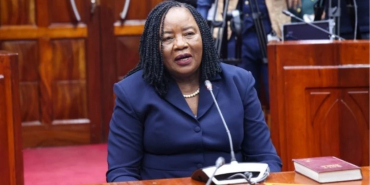New Kenyan Law Bars Public Officials from Participating in Government Tenders

Kenya has enacted the Conflict of Interest Act, 2025, legislation designed to bolster transparency, expand wealth declaration requirements, and tighten anti-graft measures.
President William Ruto signed the bill into law at State House Nairobi on 30 July, marking a pivotal moment in the country’s ongoing efforts to combat corruption.
The new law supersedes the Public Officer Ethics Act, which had been criticised for its limited scope and ineffective enforcement. By repealing this outdated statute, the Conflict of Interest Act establishes a consolidated legal framework that addresses self-dealing, preferential treatment, and undue external influence in public contracts.
A central provision of the Act mandates biennial wealth declarations for a broader spectrum of public officials. This now includes Cabinet Secretaries, Members of County Assemblies (MCAs), and senior judicial officers, such as the Chief Justice and Deputy Chief Justice. These declarations must comprehensively detail the official’s income, assets, and liabilities, as well as those of their spouses and dependent children.
These submissions are to be made to the relevant oversight bodies and rigorously monitored by the Ethics and Anti-Corruption Commission (EACC). The expanded wealth declaration requirements are intended to close long-standing loopholes that have allowed officials to amass unexplained wealth, often through proxies or opaque dealings with government entities.
The Act introduces stringent prohibitions against conflicts of interest in official duties. Public officers are now barred from granting preferential treatment beyond legally or policy-defined parameters, accepting job offers that could compromise their impartiality, or engaging in contracts with entities where they hold influence.
They are also forbidden from acquiring interests in companies that conduct business with their departments or holding secondary employment that compromises their impartiality. Speaking at the signing ceremony, President Ruto characterised the legislation as a transformative tool in safeguarding public resources.
"This is a very consequential moment in Kenya. We are making it much more difficult for people to take advantage of the offices they occupy," he said, emphasising that the law establishes clear boundaries to ensure public officers operate with integrity, transparency, and accountability.
Deputy President Kithure Kindiki echoed this sentiment, describing the Act as a "game changer" in the fight against graft. Kindiki highlighted that the legislation not only addresses loopholes exploited by corrupt officials but also curtails the use of proxies to advance personal gain.
"The EACC now has the levers to advance the fight against graft, abuse of power, and the manipulation of public trust for private gain," he said.
The enactment of the Conflict of Interest Act follows an extended legislative process, characterised by extensive debate and mediation between the National Assembly and the Senate. Initially passed in 2023, the bill underwent several revisions before receiving presidential assent.
The legislation aligns with Article 79 of the Constitution, which mandates the EACC to enforce Chapter Six, focusing on leadership and integrity.














Add new comment